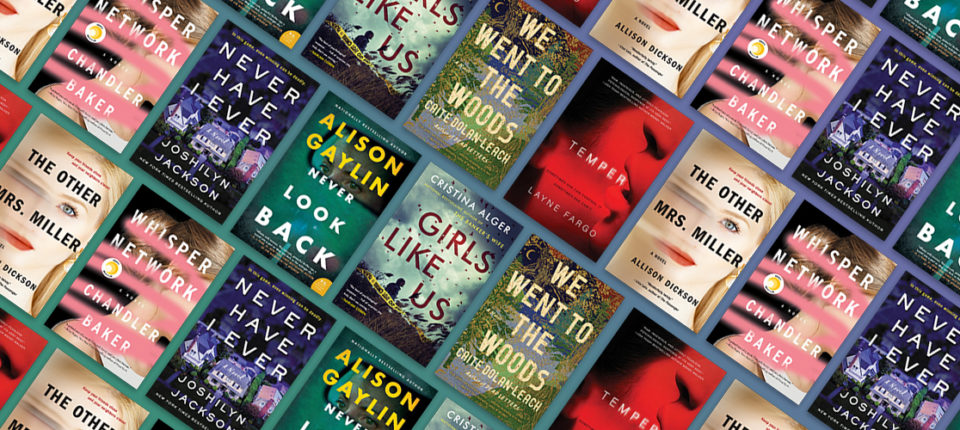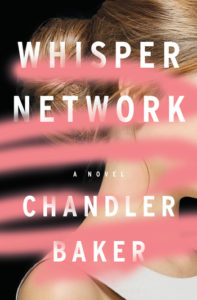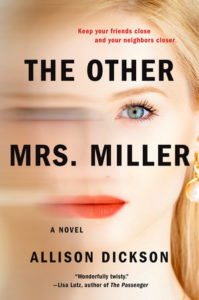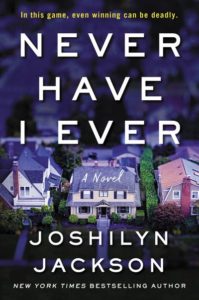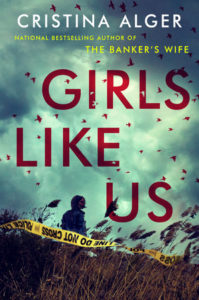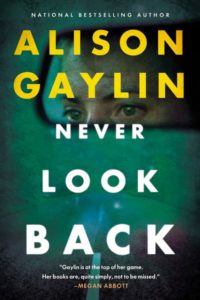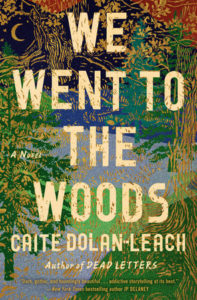This month’s psychological thriller list is bursting at the seams (and I left a few books out that were also quite good, just not as good as these). The happiest discovery is some straight-up debuts and a few novels from newcomers to the genre—Welcome, writers, to one of the most dynamic forms of fiction at the moment. Pull up a chair and let yourself be reminded how intensely pleasurable fiction can be, especially fiction with a wicked twist here and there.
Layne Fargo,Temper (Scout)
Temper is the kind of debut people are going to remember: intense, well-crafted, and emotionally blistering. Joanna Cuyler and Malcolm Mercer live and work together, running a small theater company in Chicago. Malcolm is scheming to seduce his latest leading lady—which is exactly what happens when Kira Rascher lands the plum role opposite Mercer in a dark drama called Temper. Mercer is known for pushing his actors to their limits, and Rascher is determined to shine in this intense and unforgiving role. Yet there are secrets among the three principals which change everything when they come to light.
Chandler Baker, The Whisper Network (Flatiron)
If it weren’t so intelligent and thoughtful, the Whisper Network would be a perverse book, taking advantage of the #MeToo era in the service of telling a story about the mating habits of corporate lawyers. But Whisper serves as both evidence of our current sexual climate and as one of the few non-domestic suspense books to feature women and their relationships. Sloane, Ardie, and Grace are all corporate lawyers and close friends. The action of the book kicks off when the CEO kicks the bucket, leaving Ames, their boss, the natural successor. Yet Ames has done his share of dirty deeds, some of which the women know about and some they just suspect. When he starts paying too much attention to a pretty associate, the women decide they have to take action—yet in doing so, each is putting something precious at risk.
Allison Dickson, The Other Mrs. Miller (Putnam)
Completing our trifecta of domestic suspense debuts (she interestingly has sci-fi and horror under her writing belt) is Dickson’s The Other Mrs. Miller. Dickson, a stay-at-home mom has said, “There is nothing more mysterious than the institutions of marriage and family, and never a more fertile breeding ground for the real-life monsters that live in us all.” Dickson has produced a whopper of a novel about two women—neighbors—who become enmeshed in each other’s lives. Phoebe’s ten-year marriage is going down the tubes, and her best friend is the cabernet she sips all day by the pool. When a new family, the Napiers, move in across the street Phoebe finds herself attracted to Jake, the teenaged son, and fascinated by the wife, Vicki, whose bruised arms belie a more sinister domestic life. The monsters that surface when these two families collide make for a clever and sinister read that’s never less than engrossing.
Joshilyn Jackson, Never Have I Ever (William Morrow)
Jackson, a well-known novelist with a couple of bestsellers under her belt, has made a fruitful foray into domestic suspense with Never. The book starts with a harmless drinking game and escalates into a vendetta, as one of Amy Whey’s new neighbors turns out to know the darkest secrets of her past. Angelica Roux, sleek and mysterious, shows up at the neighborhood women’s book group one night Amy doesn’t think much of her—until she begins dropping hints that she knows about the most wicked thing Amy has ever done, an act she’s spent her whole life hiding from. The crux of the book is Amy figuring out how to outsmart Roux.
Cristina Alger, Girls Like Us (Putnam)
In her debut, The Banker’s Wife, Alger explored the world of high-stakes international finance. Girls Like Us takes on quite a different setting: the heroine, FBI Agent Nell Flynn, is working on Long Island’s Gilgo Beach murders (for an excellent nonfiction account of these see Robert Kolker’s Lost Girls). The conflict in Girls is between Nell and the homicide detectives who are also working the cases. Her father has died in a motorcycle accident and Nell both has to close out his estate and investigate his colleagues to try and figure out if they—or her father—were involved in the murders.
Alison Gaylin, Never Look Back (William Morrow)
Gaylin is one of our best practitioners of suburban noir, and this book weaves in the timely element of a podcast (much like Denise Mina’s recent Conviction) to keep the momentum going. Readers of a certain age will recognize the case at the heart of the book as the 1973 murder spree of Charles Starkwether and Caril-Ann Fugate, also the source material for Terence Malik’s unforgettable Badlands. But while Badlands and other accounts of the crimes stick to Starkwether’s point of view, Gaylin tells the story through letters from the Fugate character and stories her daughter grew up knowing, so that the very foundation of her childhood is shaken by the possibility her mother was involved in these awful events.
Caite Dolan-Leach, We Went to the Woods (Random House)
We Went to the Woods is a very booky book, meaning it is best enjoyed by readers who have a background not just in crime fiction but in literary fiction and philosophy as well (take that, beach reading!). The title, and to some extent the premise, come straight from Thoreau—the man who went to the woods and wrote a fascinating and unusual book called Walden. Dolan-Leach’s characters all of their own reasons for going into the woods—escaping, discovering, engaging with nature and with humanity in an ambitious and intense way. But the results of their experiment—as with Thoreau’s—are strange and unexpected.

